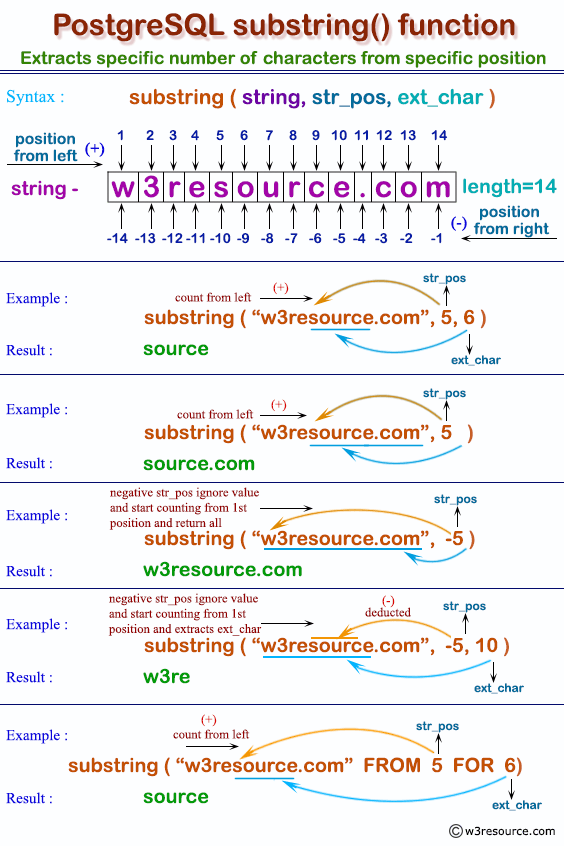

The position argument is split part function states which position string we want to return using split_part function.

We can split the string into a number of parts using delimiter. Delimiter argument is used to split the string into sub-parts by using a split_part function in PostgreSQL.We can use any of the string to split it we can also use a column name as a substring to split the data from the column. The string argument states which string we have used to split using a split_part function in PostgreSQL.It is used to split string into specified delimiter and return into result as nth substring, the splitting of string is based on a specified delimiter which we have used.Using value as 0 and -1 will display the error as “ERROR: field position must be greater than zero”.In the below first example, we have used a position of 1 after using position 1, it will display the string’s value is X.We need to define a greater than zero value at the time using the split_part function in PostgreSQL.We need to define a position value as a positive number a negative value is not allowed in the position argument.Split part function is very important and useful in PostgreSQL to split a string into nth parts.How PostgreSQL SPLIT_PART() Function Works?īelow is the working of the PostgreSQL split_part function. Table name: Table name is used to retrieve data from the specified column using the split_part function in PostgreSQL.We can split the column data rows using the split_part function in PostgreSQL. Column 1 to Column N: Column name used to get the information from the table.We can select a column using the split_part function and split column string. Select: Select is used to select a column of the table using the split_part function in PostgreSQL.The position will start from 1, and it should not be negative it is always a positive integer. Position: Position in split part function states which position string we want to return using split_part function in PostgreSQL.We can split the string into a number of parts using a delimiter. Delimiter: Delimiter is used to split the string into sub-parts by using a split_part function in PostgreSQL.Split_part (): PostgreSQL split_part function is used to split string into specified delimiter and return into result as an nth substring, the splitting of string is based on a specified delimiter which we have used.String: String is states that which string we have used to split using a split_part function in PostgreSQL.Select split_part (String (In this position column name as we have defined a string.), delimiter, Position), split_part (String (In this position column name as we have defined a string.), delimiter, Position), Column_nameN from table_name īelow is the parameter description of the above syntax. So this call can be converted to INSTR with 2 parameters in PostgreSQL:įor more information, see Oracle to PostgreSQL Migration.Hadoop, Data Science, Statistics & othersīelow is the syntax of the split_part function in PostgreSQL. 4 parameters are specified, but 3rd and 4th have default values SELECT INSTR ( 'abcbcb', 'b', 1, 1 ) FROM dual In this case the user-defined function is not required and POSITION function with 2 parameters can be used in PostgreSQL:
POSTGRESQL SUBSTRING CODE
Find 2nd occurrence of substring in string starting from 3 position SELECT INSTR4 ( 'abcbcb', 'b', 3, 2 ) Īlso some Oracle code can use INSTR function with 4 parameters, but 3rd and 4th parameters having values of 1. So now you can use this user-defined function for INTR with 4 parameters in PostgreSQL: The required occurrence found IF v_found = 1 THEN Nothing found IF v_pos IS NULL OR v_pos = 0 THEN RETURN v_pos P_start INT, p_occurrence INT ) RETURNS integer AS $$ In PostgreSQL you have to use an user-defined function to find the Nth occurrence of substring:ĬREATE OR REPLACE FUNCTION instr4 (p_str VARCHAR, p_substr VARCHAR , Find 2nd occurrence of substring in string starting from 3 position SELECT INSTR ( 'abcbcb', 'b', 3, 2 ) FROM dual INSTR with 4 parameters starts searching the specified substring from the specified position and returns the position of the specified occurrence of string:


 0 kommentar(er)
0 kommentar(er)
